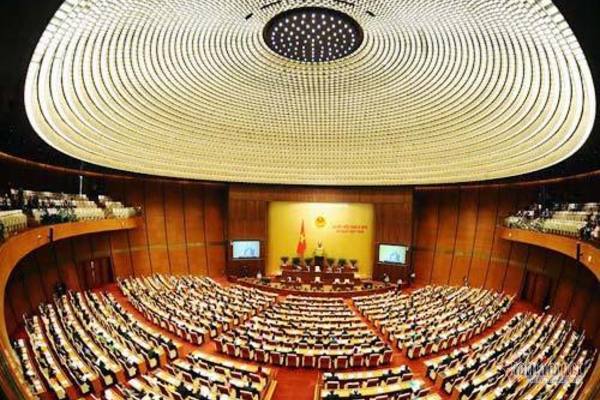 |
|
Vietnam has comprehensively "internalized" international conventions on human rights.
|
The State of Vietnam has issued 13,000 legal documents of all kinds, including more than 40 laws, over 120 ordinances, nearly 850 legal documents of the government and over 3,000 legal documents of ministries, branches, which have comprehensively "codified" the international conventions on human rights.
In the renovation period, our Party and State's socio-economic development strategy is to place people at the center of development in order to stimulate the potential of individuals, organizations and the whole community. ethnic group.
Along with perfecting the legal system, the State has reformed the organization and operation of judicial agencies, enhanced the roles and functions of elected bodies, and increased the effectiveness of State administrative agencies, building a rule of law state to ensure human rights.
In an elaborate study, Dr. Pham Ngoc Anh, Ho Chi Minh National Academy of Politics and Public Administration, shared that in 1986, the Sixth National Congress of the Party officially declared the renovation policy with the basic content of transforming the economy from a centrally planned bureaucratic centralized planning economy to a multi-sector economy operating under the state-controlled market mechanism of the State; democratize social life on the basis of building a rule of law state of the people, by the people and for the people; open the door to enhance the exchange and cooperation with the outside in the spirit of Vietnam willing to make friends with other countries, striving for peace, cooperation and development.
In that spirit, by placing people at the center of all policies, considering people as both a driving force and a goal of development, the above-mentioned innovation not only affects economic In the meantime, there are many social and economic issues that simultaneously strongly influence awareness and reality of human rights in our country in recent years.
Dr. Pham Ngoc Anh cited: In the 1992 Constitution (Article 50) for the first time mentioned the term human rights and affirmed: “In the Socialist Republic of Vietnam, human rights are righteous. The political, civil, economic, cultural and social values are respected, embodied in civil rights and regulated in the Constitution and laws ”.
Particularly in the field of legislation, only from 1996 to 2002, the State has issued 13,000 legal documents of all kinds, including more than 40 Laws and Laws, over 120 Ordinances and nearly 850 legal documents. laws of the Government and over 3,000 legal documents of ministries and agencies, which have comprehensively "internalized" international human rights conventions that Vietnam has ratified or acceded to since the beginning of the year 80s of the twentieth century and in this period. This is something that we could not do in the previous period.
In terms of civil and political fields, in the 1992 Constitution, there are 5 important rights newly or added, including property rights (including means of production); business freedom; the right to go abroad and return home from abroad according to the law; the right to information under the law; equal rights of religions; the right to not be regarded as guilty and to be punished without a conviction and to be punished without a conviction of the Court which has taken legal effect.
In addition, the 1992 Constitution mentions that the State protects the legitimate rights and interests of Vietnamese residing abroad and broadens the protection and assistance of vulnerable social groups.
In order to ensure the implementation of the people's economic, social and cultural rights in the new period, from 1986 to the present, in addition to the 1992 Constitution, the State has issued many important legal documents. These include the Civil Code (1995), the Labor Code (1994), the Education Law (1998), the Law on Protection, Care and Education of Children (1991), the Law on Universal Primary Education. (1991), Ordinance on the Disabled (1998) ...
 |
|
Since the country regained independence, Vietnam has paid great attention to the people's right to access to education.
|
In addition to establishing a legal corridor, from the renovation to the present, the State has developed and implemented a series of socio-economic policies and programs to promote the guarantee of work rights and focus. in expanding and developing local professions, supporting businesses, expanding international cooperation on vocational training and labor export ...
Ensuring the right to access to education: Right from the beginning of independence, our State has paid great attention to the people's right to access to education. Platform for building the country during the transition to socialism established by the Party in 1991 identified education as a top national policy.
This view is institutionalized in Article 35 of the 1992 Constitution: "Education and training are the top national policies". This is the ideological basis for realizing the people's right to access to education in the new period.
These are undeniable evidences that the thinking and awareness of human rights in Vietnam are increasingly renewed and perfected.
Minh Van
 Vietnam has comprehensively "internalized" international conventions on human rights.
Vietnam has comprehensively "internalized" international conventions on human rights.